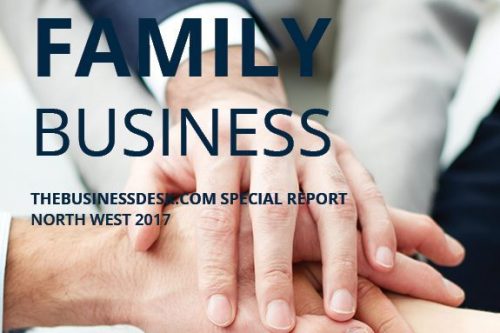Special report: Family business – the ingredients for success

There are around 3 million family firms in the UK, employing more than 9.5million people across every sector and contributing more than £102bn in tax to the country. Collectively this is a force to be reckoned with.
But what drives the fortunes of these families and what are the special ingredients that make up a successful family-run business?
Quality, patience, passion and having a shared vision all figure highly on the minds of those who are involved in a family concern.
The stakes can also be higher. Family values are vital, as Chris McLaughlin, managing director at MIS Active Management Solutions, explains: “As a family business you’ve got a good reputation and it impacts on you more if you are not delivering something with a high enough quality.”
Jonathan Dobkin, managing director at Connections, a family run independent recruitment business with a head office in Sale, agrees and says the pressure is always on.
He says: “You have to present yourself in the best light and know you can deliver. If you don’t it’s your family name that suffers. If you don’t actually deliver, ultimately you feel responsible for your own family. I think that is part of the USP.”
Joy Kingsley is senior partner at law firm JMW. It carries out work for a range of family businesses and, although not family owned itself; she says the practice aims to operate along the same lines, putting people at the centre of everything it does.
She says: “There is a degree of loyalty shown in these companies. Trust, knowledge, you have got continuity; these are all positives.”
The belief that these family affairs offer a greater level of personal service can also be a strong selling point.
Andy Jones, is a non-family member working at a senior level in a family run company. He is financial director at Manchester-based property business Artisan Investments, and says: “At the end of the day the people you are interacting with believe that they aren’t just a number.
“If it’s a corporate business they don’t feel the same connection. If you are a family business they feel that it matters more to you.
“If your brother, dad granddad or sister started it, people perceive straight away that you care more because it is a family business. And, depending who you are pitching to, generally people buy into it more.”
Zera Remtulla is a director at her family’s manufacturing business Laila’s Fine Foods in Blackpool. She says: “I do care more because it’s a family business. The decisions you make don’t just not just affect you or your business; it’s my parents, my sisters, my nieces; you are very involved.”
Being the founder’s daughter also makes her work harder in the business, she adds. “Everybody is looking at you.”
Remtulla goes on: “Family members work the longest and hardest. We are the ones whose phone is on 24 hours a day. You absolutely live and breathe it. But I love it; my passion is real for what we do.”
This feature is part of our special report on family business. Click here to download the full report for free.
Jones says: “Two words are key when I employ anyone: passion and commitment. If you’ve got these two things you’ll succeed. In terms of employing family I always say to them you have to be better than everybody around you, not the same.”
Alex Wyers, joint managing director of Sale-based national cleaning contractor Floorbrite, which was started by his father 44 years ago, agrees: “You grow up in that environment that you have got to be the best and set an example.”
That drive to succeed is also seen as a vital ingredient of a successful family business.”
McLaughlin explains he didn’t join his family firm straight away and instead started his career at one of the large national professional services businesses.
He says: “It was a completely different environment, but it was fantastic, all the things I learned about governance, quality and structure, the different training courses they gave you.”
However, despite that there was a level of nervousness when he arrived at the family business, coupled with the need to prove himself.
He says: “I wanted to be respected when I walked in the door. I wanted to go in with something to prove that I should be there.”
Dobkin adds: “It’s that work ethic that I’ve always instilled in my kids. Me and my sister both did other things after university before we joined the business.
“We both came in having earned our stripes elsewhere. You still have to earn respect. I’ve got to lead by example.”
Kingsley of JMW agrees: “You have got to lead from the top. We all feel we have eyes upon us and we want to encourage behaviours in the business.”
This feature is part of our special report on family business. Click here to download the full report for free.









